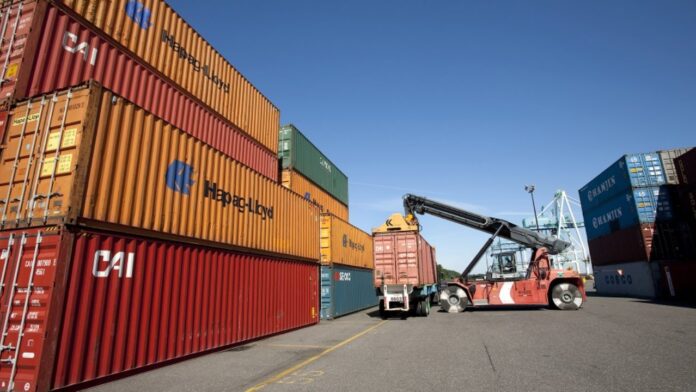Maritime industry experts have raised concerns over Nigeria’s persistent loss of more than $500 million annually due to the absence of a structured and regulated shipbroking system. This loss, they say, is largely tied to the informal nature of vessel chartering and the lack of professional oversight in the maritime sector.
Speaking with journalists in Lagos, Capt. Tami Adu, a maritime expert, explained that a major contributor to this financial drain is the non-compliance with cabotage tax enforcement. The cabotage tax, a statutory 2% charge on all vessel contracts, often goes unmonitored because most vessel chartering deals in Nigeria happen informally, with little to no documentation. According to Adu, if certified shipbrokers were officially responsible for overseeing vessel transactions, every contract would be tracked, and government revenue would be protected.
He emphasized that shipbrokers are not just middlemen; they are trained professionals responsible for vessel vetting, technical compliance, contract negotiation, and providing market intelligence, all critical to safe, reliable, and profitable maritime operations. Without them, Adu noted, Nigeria’s maritime industry is at risk of poor contract execution, low safety standards, and lost income.
Adding his voice, Mr. Sesan Ajayi, Chairman of the Nigeria Chapter of the Institute of Chartered Shipbrokers (ICS), revealed that there are currently fewer than 40 certified shipbrokers in Nigeria, despite the large and growing demand in the sector. He warned that the country’s maritime trade is being handled mostly by unqualified individuals, which puts the economy at risk and limits Nigeria’s potential under frameworks like the African Continental Free Trade Area (AfCFTA).
Ajayi also drew attention to the country’s staggering logistics cost, which stands at 23% of GDP, nearly double the global average of 12%. He argued that this inefficiency stems from fragmented and unprofessional practices in shipping and chartering—gaps that professional shipbrokers are equipped to close. Despite efforts to develop Nigeria’s marine and blue economy, the sector still contributes less than 1% to the national GDP, underscoring the need for urgent reforms.
Mr. Abdulrasak Arije, a senior member of ICS, described the institute as the gold standard for maritime professionalism, with global reach in training and certifying shipbrokers, vessel sales agents, and chartering experts. He explained that ICS aims to build local capacity that meets international standards and supports both government policy and private sector growth. Arije also emphasized that ICS serves as a neutral and credible voice in compliance and policy dialogue, critical for a sector where trust between regulators and operators has long been fractured.
One major policy concern raised by stakeholders is the Cabotage Vessel Financing Fund (CVFF), which was established nearly two decades ago to support indigenous shipowners but has remained largely unused. Arije explained that bureaucratic delays, policy inconsistencies, and a lack of trust have all hindered the fund’s activation. With over $360 million currently sitting idle, stakeholders argue that effective deployment of the CVFF, alongside trained shipbrokers, could boost indigenous participation in the maritime industry and reduce reliance on foreign vessels.
In response to these challenges, the Federal Ministry of Marine and Blue Economy, under Minister Adegboyega Oyetola, has recently announced efforts to eliminate waivers for foreign vessels operating in Nigerian waters. The move is part of a broader strategy to enforce the Cabotage Act of 2003 and strengthen local ownership in maritime logistics.
While stakeholders applauded the newly launched National Maritime Policy, they stressed that real progress can only be achieved if it is paired with manpower development, regulatory enforcement, and the integration of trained professionals into key operations. “Shipbroking is still green in Nigeria,” said Ajayi. “But if done right, it can revolutionize how cargo moves, how vessels are sourced, and how contracts are structured locally.”
As Nigeria looks to expand its maritime footprint across Africa and improve trade logistics, experts insist that formalizing shipbroking, deploying dormant industry funds, and enforcing existing laws could unlock billions in untapped revenue, reduce logistics costs, and enhance investor confidence in the sector.

